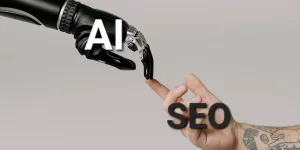AI has changed many fields, and SEO will be one of them, too. Google and others are already using AI in their search engines to change how sites are ranked and how they attract visitors. But, like with any change, many SEO companies find it hard to adjust and worry about how these AI tools will affect their rankings, methods, and jobs.
There’s no reason for alarm. AI isn’t going anywhere, so businesses must accept the changes that are happening and those that will happen. This article will explore how AI is reshaping SEO and what it means for the industry’s future.
Table of Contents
Evaluating AI’s impact on SEO so far
Generative AI content: what is its impact on SEO?
How Google’s Search Generative Experience (SGE) will change SEO and traffic
How should SEO strategies adapt to the new rules of the game?
Where businesses can use AI in their SEO strategies
Top SEO software tools available now
Rounding up
Evaluating AI’s impact on SEO so far
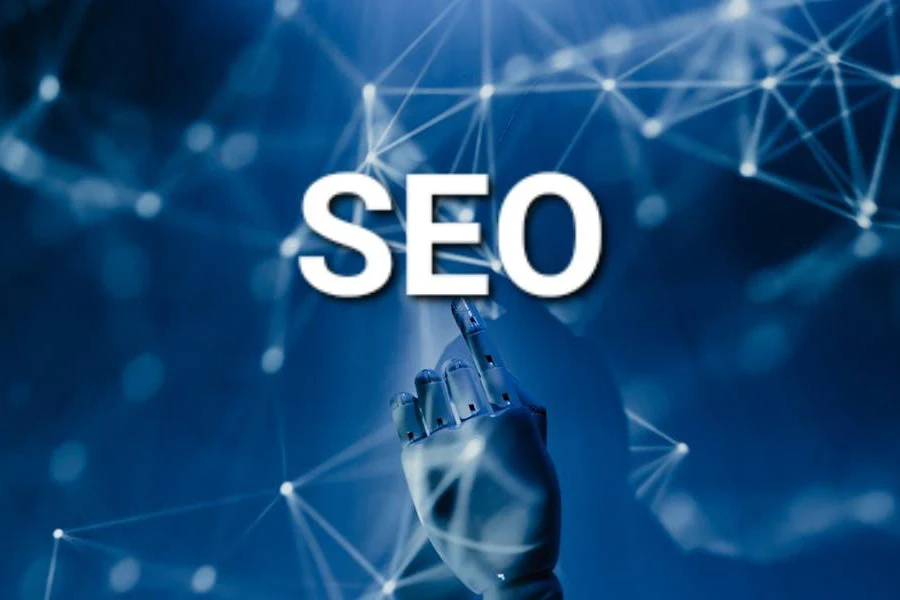
Artificial intelligence (AI) has greatly changed SEO. Since Google’s RankBrain came out, search engines have used machine learning to adjust and customize how they rank web pages. This advancement reduced the manipulative SEO techniques some businesses used to exploit.
While not all SEO experts used these questionable methods, the shift led to a more strategic approach to SEO. Instead of relying on quick fixes, SEO professionals now take a more detailed view. These new strategies involve:
- SEO experts use AI to understand, process, and organize data. AI helps SEOs focus on the most impactful factors by analyzing large amounts of data.
- They leverage its data insights to understand user interactions with search engines and websites. This includes user intent, conversational keywords, and measuring performance in traffic, engagement, conversions, and revenue.
- SEO experts Integrate with digital media channels and move beyond working in isolation. Digital marketers, content creators, and paid media strategists also use insights from AI to understand consumer behavior across different markets.
- They inform all marketing strategies, including email, content, visual, and paid marketing, at a detailed level.
- SEO experts adopt automation to handle repetitive tasks, allowing them to scale their operations, enhance their content and marketing skills, and be more efficient.
Generative AI content: what is its impact on SEO?

The excitement around ChatGPT has been amazing. For the first time, consumers can interact directly with AI in a conversational way, and this has driven the initial buzz exceedingly. However, many chat-based tools now flood the market, including standalone tools, website options, and many plugins for various marketing applications (from coding to advanced visualization).
While some of these tools are useful, many are not. The best way to decide which ones are worth the effort is to experiment cautiously and ensure humans oversee the creation and review of any generative content. More importantly, regarding AI and SEO, the core principles of search engine optimization remain unchanged.
Content should still showcase expertise, authoritativeness, trustworthiness, and experience to meet Google’s high-quality content guidelines. AI keeps these basics the same. However, SEO professionals must work closely with content teams to ensure they use AI tools (like ChatGPT) appropriately.
They must also stay alert to new algorithm updates and changes in how search engines measure content for originality and user value. Thankfully, generative AI will help boost content production, allowing for faster and more efficient creation. This change should reduce the manual effort businesses need to get organic traffic, streamlining the process and making it more effective.
How Google’s Search Generative Experience (SGE) will change SEO and traffic

While it’s too soon to say, experts think SGE might affect SEO traffic like other ‘zero-click’ features do. Since SGE takes up important space on the search results page and answers questions right there, people might not need to click on website links to find what they need.
It could mean the top-ranking sites will get fewer visitors. However, the visitors who click through might be more interested, which may lead to higher conversion rates and better organic traffic. So, SEO strategies should focus more on making better pages and improving conversion rates to attract such results. These tactics will help businesses stay competitive as SGE results become more common.
It’s clear that search results pages will change, even though experts don’t know all the details yet. The SGE preview shows that Google plans to make significant changes. Regardless, the innovation offers a great chance for SEO teams to excel and create content that improves customer experiences.
How should SEO strategies adapt to the new rules of the game?

With all the changes in search algorithms over the years, SEO professionals must plan for the future while sticking to what works now. Google’s guidelines should always be the main guide for creating effective SEO strategies. However, they should keep some other things in mind when updating their strategies.
Remain flexible
At the same time, it’s important to keep websites flexible. This way, businesses can quickly adjust to new keyword opportunities from new technology or changing user habits. Reducing manual work helps SEOs respond and try out new ideas faster.
Monitor the competition
Watching your competitors is also crucial. See how they use technology like AI and respond to features like SGE. This tactic can give businesses useful insights and a competitive edge. Try out these new tools and monitor how they affect important search queries.
Prepare for changes in other search engines
SGE is different, and SEOs might need to adjust to big algorithm changes as they grow. Also, be prepared for changes from other search engines like Bing or large language models.
Don’t forget the basics
While exploring these new areas and watching competitors, businesses should not forget the basics that are working well right now. Balancing new ideas with proven methods is the key to lasting SEO success.
Where businesses can use AI in their SEO strategies
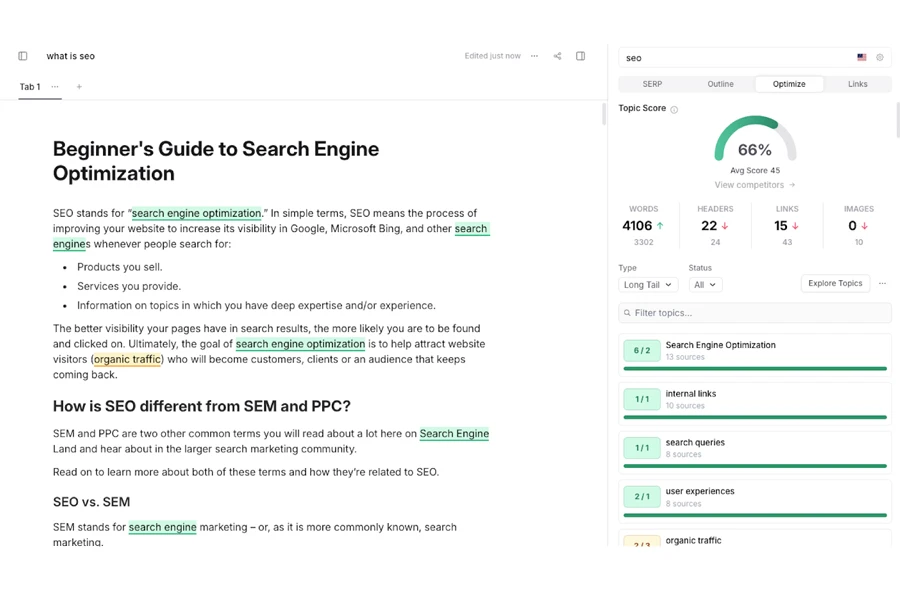
Artificial intelligence is now helping companies improve their SEO quickly and efficiently because it can analyze data patterns faster than humans, on a large scale, and in real time. SEO experts are using AI tools today to do more with less effort and gain advantages that manual work can’t match.
This includes using AI to enhance existing content, suggest new topics, and automate SEO tasks. AI’s ability to boost marketing efforts, such as SEO, pushed McKinsey analysts in the Harvard Business Review to estimate that AI could add US $1.4–2.6 trillion in value to marketing and sales. AI may still be developing, but businesses can use it now to gain incredible SEO abilities. Here are some areas where AI comes in handy.
Keyword research

What keywords should companies target with their website and content? It’s a key question for every SEO professional. Previously, businesses had to spend a lot of time doing keyword research with traditional SEO tools. These tools gave general information on search volume and difficulty but didn’t show how well they would perform.
Today’s AI tools change keyword research by giving companies data that fits their website’s authority. They analyze entire sites to see how hard it will be for businesses to rank for certain keywords. This “personalized difficulty” brings new opportunities for SEO businesses.
They may detect that some easy keywords are actually hard to rank for, saving businesses time and money on content that doesn’t work. On the other hand, they may see that tough keywords are easier for their site, giving them an advantage in the changing landscape.
Create SEO strategies

AI can do more than just find keywords. It also helps businesses create a strong overall SEO plan. Today, many AI tools can suggest topics to cover when creating content. This feature helps brands beat the competition and fill any gaps in their content. AI also shows related topics and search terms that can be included in the new content.
Content optimization
AI is helpful for SEO planning, but businesses can also use it to improve specific articles quickly. AI’s insights can help them understand how well each article is doing. It can suggest topics to cover, ways to beat competitors, and the best length and quality for articles. With “content briefs,” AI can offer a full list of tips to improve content, including what questions to answer and where to add links.
Top SEO software tools available now
Now that businesses know where the SEO industry is headed and the benefits they can enjoy from AI presently, here are some tools that can do the job:
MarketMuse
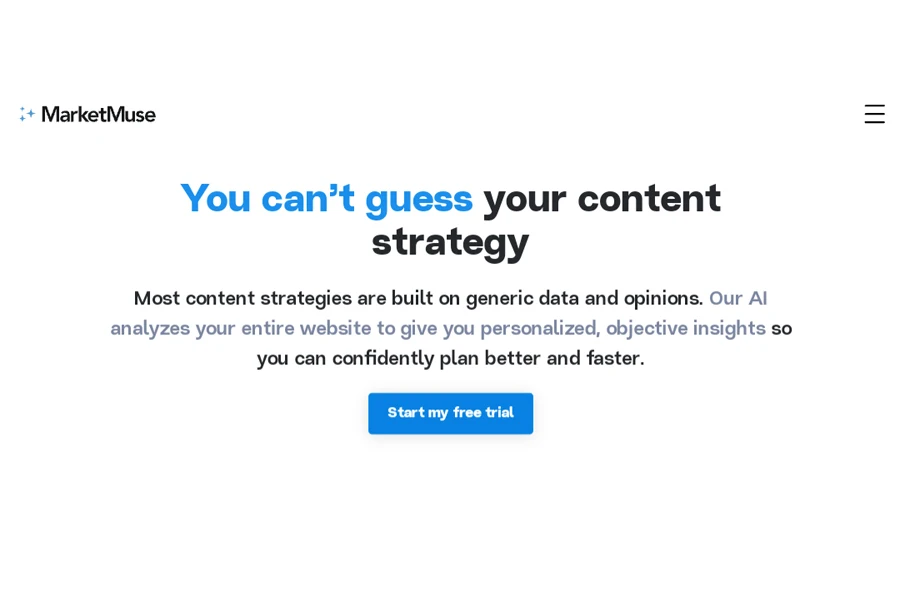
MarketMuse is an AI tool that helps create content strategies. It shows users which terms to target to compete in specific topics and highlights topics they must cover to dominate certain areas. This tool gives any content team AI-powered SEO advice and insights.
BrightEdge

BrightEdge is a top player in SEO and content marketing. It combines search intent discovery, optimized content creation, and performance tracking in one package. The AI in BrightEdge helps find what people are searching for and helps users build a content strategy to attract traffic and interest.
Frase
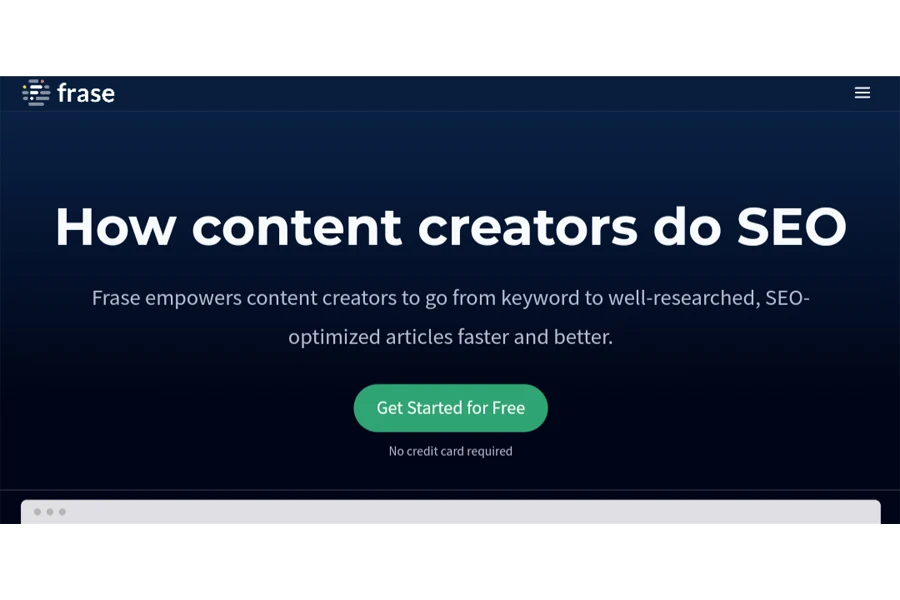
Frase is an AI platform that tells marketers what questions people are asking and helps create content to answer those questions. It can create content briefs on any topic and manage site visitor questions. Both large and small companies use Frase to quickly research content, improve SEO results, and develop smarter content strategies.
HubSpot
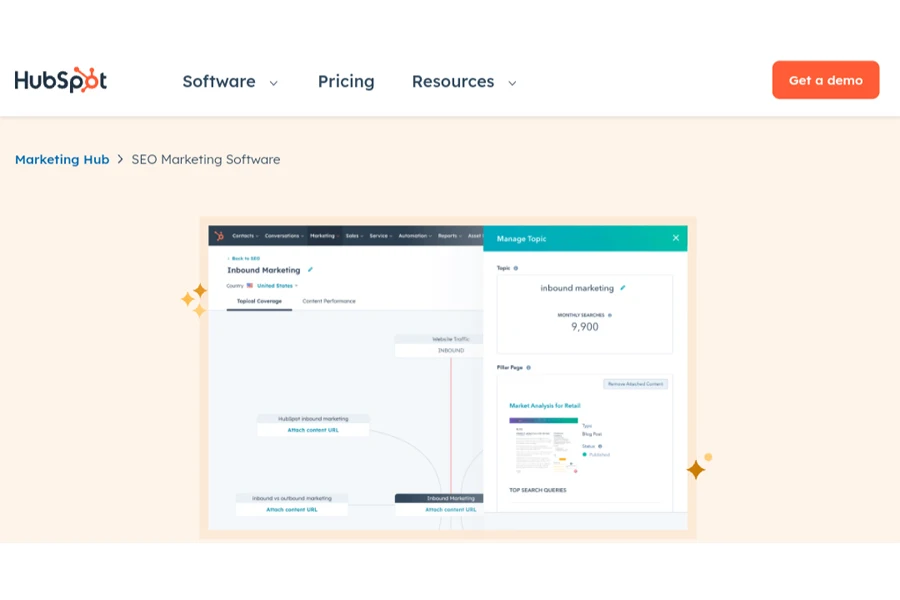
HubSpot’s marketing automation platform includes AI and machine learning features for SEO. The Content Strategy tool uses AI to determine what themes search engines link with users’ content and provides suggestions for new topics to write about.
Alli AI
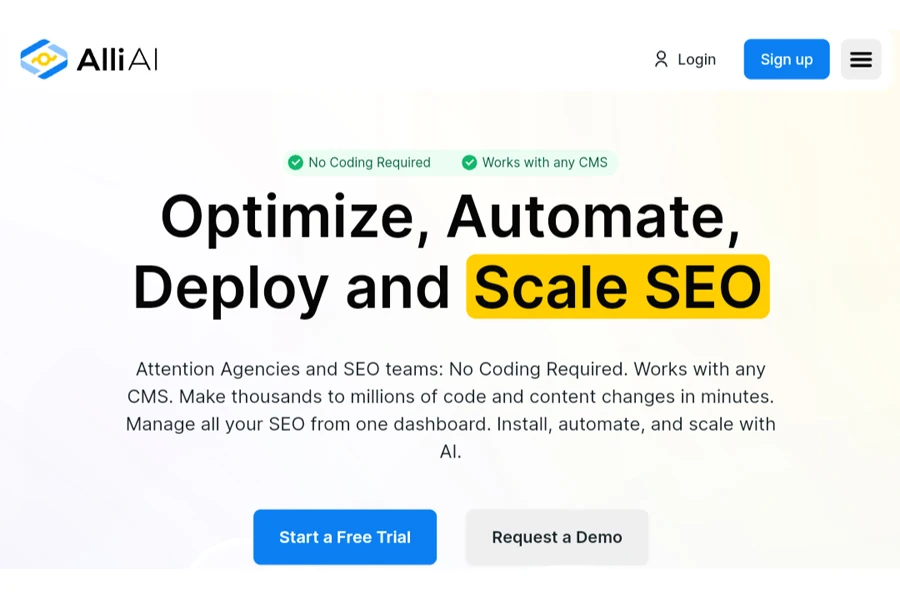
Alli AI uses AI to optimize any website quickly without the need for coding. It works with any CMS and offers numerous SEO actions that users can execute by clicking a button.
Rounding up
AI may be a sensitive topic at the moment, but many people can’t deny its benefits. Despite its risks, AI is quickly developing into a faster and more efficient way to do many tasks, including search engine optimization.
The best part is that it can do more than just the three areas listed here—businesses can also use SEO AI tools to automate and scale SEO, maintain accurate search listings, and create SEO content. The future is bright for SEO and AI, so it’s time for businesses to adapt.
